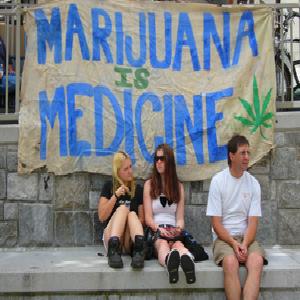 IB City Council Realized The Competing Initiative Was An Attempt To Mask An Outright Ban
IB City Council Realized The Competing Initiative Was An Attempt To Mask An Outright Ban
By Eugene Davidovich
In March of this year medical cannabis advocates with Canvass for a Cause and San Diego Americans for Safe Access began circulating a petition to place the Safe Access Ordinance of Imperial Beach on the November 2012 ballot.
If passed the initiative would repeal the current ordinance prohibiting four or more patients from associating anywhere in the city to cultivate medical cannabis, and replace it with strict zoning and operational requirements for medical cannabis dispensing collectives.
On June 8th less than three months after the signature drive began, advocates submitted over 1,550 valid signatures to the City Clerk for processing. On June 21 the Clerk announced the signatures were sufficient and the petition valid; the official reading of the certification of the petition was subsequently placed on the agenda for the July 18th City Council meeting.
At the July 18th meeting, Council was presented with several options: adopt the proposed ordinance outright, send it to the November ballot, write a competing initiative, or ask for an impact report to be completed by city staff.
Ordering a report which could take as long as thirty days to complete would have required the results presented to Council at the Aug. 15 meeting. This would be five days past the deadline issued by the Registrar of Voters to place all initiatives from local municipalities on the November ballot. The five day delay would have forced the people’s vote to be delayed for two years until the next general election in 2014.
Most members of the media and public were convinced Council would request the report and delay the vote. In fact, Mayor Janney and City Manager Brown both indicated that’s what they would be vying for leading up to the meeting. To everyone’s surprise however, at the July 18th meeting Council did not order the report, instead opted to place the proposed initiative on the November ballot assuring the public their vote would not be delayed.
Council did however decide the initiative was not strict enough and a competing measure should be written. They voted to create a subcommittee headed by Council members Brian P. Bilbray and Edward J. Spriggs to work on it. The subcommittee was to write a competing measure with more stringent zoning restrictions limiting access to only one sole licensed dispensary in the city and modeling it after San Diego County’s current ordinance regulating the sole permitted cooperative in the county.
The competing measure was to be brought back to council at the next meeting on August 1st so they would not miss the August 10th deadline and have enough time to place it along side the voter-driven initiative on November’s ballot.
After the subcommittee met and discussed what should be in the ordinance, they provided their recommendations to the City Manager and were expecting to receive a draft ordinance that actually reflected what they asked for; an initiative allowing one dispensary in the city. Instead, they received an outright ban very cleverly masked as complex regulations.
The full text of this competing measure was not made available to the public or to council members themselves until one day prior to the meeting, ensuring no one had enough time to analyze it and figure out the City Manager’s scheme.
Fortunately advocates and members of the community quickly identified the trick and exposed it to the full council during public comment.
Advocates and community members alike told council members, under the competing initiative even two patients associating to cultivate one cannabis plant would be required to apply for a certificate and get a background check.
If they qualified for the certificate and passed the background check, the two patients wishing to cultivate their own medicine would have to comply with another provision of the ordinance; no cultivation on site.
As a result of this ‘catch 22’, the competing measure would have prohibited as little as two or more patients from growing medicine in their own home, making the measure worse then the current ban which limits four or more patients from doing so.
As soon as advocates exposed these issues council members scrambled to look through the text of the measure to confirm. Several council members even asked the City Attorney and Manager about the concerns raised by the public.
After giving a long-winded and very confusing answer, the City Attorney essentially agreed with advocates’ concerns after which in a narrow 3-2 vote, Council abandoned the competing initiative.
This November, Imperial Beach voters will now decide whether to continue to criminalize the most vulnerable members through unconstitutional bans or to allow sick and dying patients to cultivate their own medicine in their homes as well as create strict zoning and operational requirements for dispensing collectives in the City.
Advocates are confident that once presented with a choice voters in the city will choose Safe Access rather then a ban, deciding once and for all to resolve the medical cannabis issue and to allow qualified patients to have safe, local, reliable access a medicine that in many cases is their one and only alternative.
Further Information:
Campaign Website — www.SafeAccessIB.org
Initiative Text – https://www.safeaccessib.org/read-the-initiative/
Email the campaign for more information at: [email protected]









